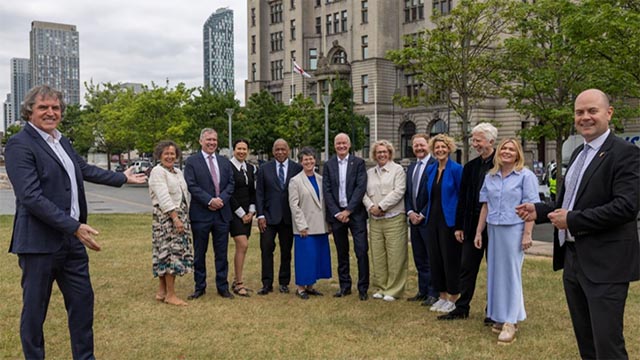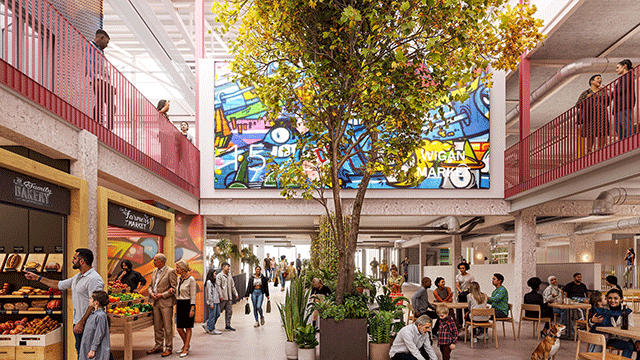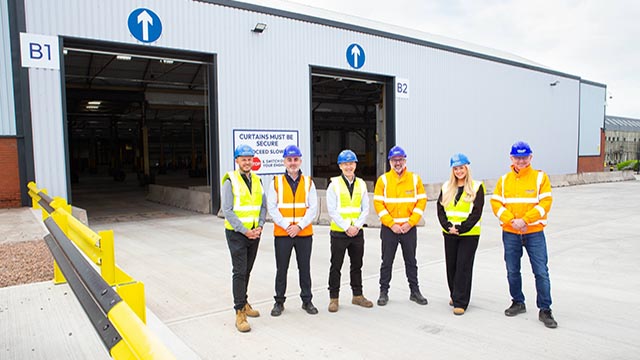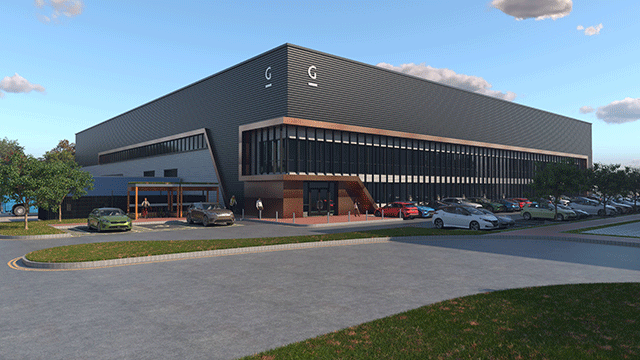The Dutch company is aiming for a flotation to fund a growing development programme and build up an investment portfolio
MAB, based in The Hague, is one of the largest Dutch development companies and is still privately owned. Like its competitors, MAB relies on the sale of developments to release capital to finance its expanding development activities. But MAB is taking steps to change this.
In a move to give itself more financial flexibility it has arranged a NLG 500m credit line with the property financing arm of Bouwfonds. This company, which itself is also active in property development, has acted as provider of development finance for MAB on a series of developments but always on an ad hoc basis. The new arrangement gives MAB a greater degree of financial flexibility and reduces pressures to sell developments when investment market conditions make this unattractive.
Longer term, MAB is aiming to obtain greater financial muscle through a flotation, giving it access to new equity. Partly in anticipation of this, the company has already put a new structure in place, in which it operates through three business units: development, investment and supporting services.
The investment function is a new departure for MAB and has been introduced to provide a more stable basis to profits.
This year the company plans to invest NLG 50m in its investment portfolio, followed by NLG 100m next year. MAB is aiming for a total investment portfolio of around NLG 500m. By the year 2000, between a quarter and a third of profits will come from investment.
MAB combines an involvement in often complex and large-scale inner city projects in Holland with activities abroad in France, Germany and the UK. Large schemes in Holland include the 103,000 m2 phased office development The Resident in the centre of The Hague.
MAB has built up a considerable development pipeline, with an estimated NLG 3.5bn of schemes under construction and in preparation. Recently it has been selected as the preferred developer of the Oosterdok scheme in the centre of Amsterdam, which includes a multi-media centre, library, hotel, conference centre, 60,000 m2 offices, 10,000 m2 retail and 300 apartments.
In France, MAB has started on the development of Espace Coty (27,000 m2), a shopping scheme in the centre of Le Havre. It also has a number of schemes in the pipeline in the Paris region, including an 8,000 m2 retail scheme in Fontainebleau and mixed leisure/retail schemes in St Quentin en Yvelines (40,000 m2) and in Bussy St George (30,000 m2).
In Germany a town centre scheme in Hamm and pre-let offices near Hamburg are under construction. Further office developments are in the pipeline in Potsdam and Dresden.
In the UK, MAB has consent for a 40,000 m2 mixed town centre scheme in High Wycombe, west of London, where a start is due early next year. MAB is also investigating development opportunities in central and eastern Europe.
At the turn of the century MAB aims to lift annual turnover from around NLG 400m to NLG 500m and net profits from NLG 14.7m in 1997 to NLG 25/30m. By that time the company also aims to derive around half its turnover from abroad.
MAB
Van Stolkweg 23
Postbus 80538
2508 GM Den Haag
tel:+31 70 352 4144
fax:+31 70 354 3618










